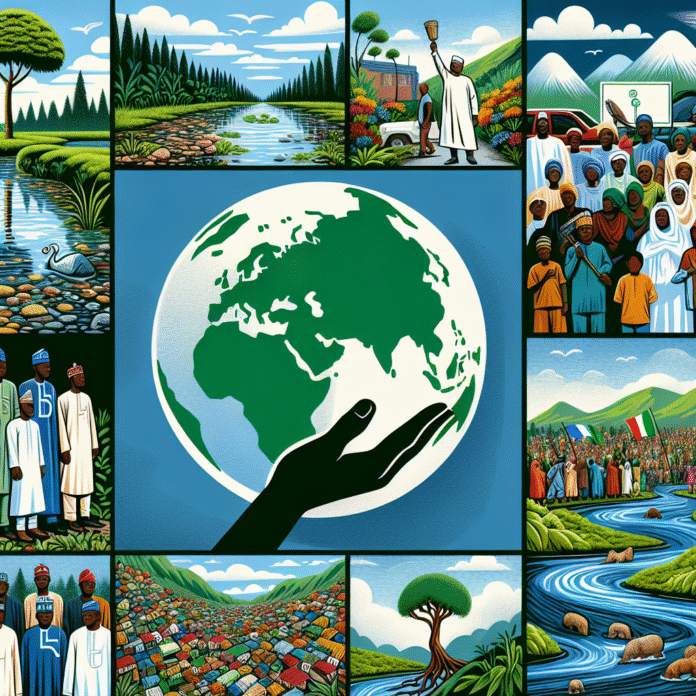World Environment Day Urges Nigeria to Uphold Healthy Environment Rights
World Environment Day: Advocating for the Right to a Healthy Environment in Nigeria
World Environment Day, celebrated annually on June 5th, serves as a global platform advocating for environmental protection and sustainable development. This year’s theme underscores the urgent need to recognize and elevate the right to a healthy environment, particularly in Nigeria, where environmental challenges are increasingly dire.
As Nigeria grapples with issues such as deforestation, air and water pollution, and the impacts of climate change, the call for a healthy environment has never been more critical. The country is rich in biodiversity and natural resources, yet the exploitation of these assets has led to significant ecological degradation. This degradation not only threatens wildlife but also poses serious health risks to communities, particularly those in vulnerable regions.
Understanding the Right to a Healthy Environment
The right to a healthy environment is increasingly acknowledged in international human rights frameworks. It emphasizes that every individual should have access to a clean and safe environment, which is essential for their health and well-being. In Nigeria, this right is enshrined in various legal frameworks, but enforcement remains a significant challenge.
The Nigerian Constitution, alongside international treaties, outlines the importance of protecting the environment. However, the lack of effective implementation of these laws often leaves communities exposed to environmental hazards.
Environmental Challenges in Nigeria
Nigeria faces a multitude of environmental challenges that threaten both people and ecosystems. Key issues include:
1. **Deforestation**: The rapid loss of forests due to logging, agricultural expansion, and urbanization has led to habitat loss and increased greenhouse gas emissions, contributing to global warming.
2. **Pollution**: Industrial activities, inadequate waste management, and the use of harmful chemicals have resulted in air and water pollution. Communities living near polluted sites often suffer from various health problems, including respiratory diseases and contaminated water supplies.
3. **Climate Change**: Nigeria is particularly vulnerable to climate change, experiencing extreme weather events such as floods and droughts. These changes affect agriculture, food security, and livelihoods, exacerbating poverty and inequality.
4. **Oil Spills**: The Niger Delta region, rich in oil reserves, has been severely affected by oil spills, leading to the destruction of marine and coastal ecosystems. The local communities, dependent on these resources for their livelihood, face dire consequences.
Mobilizing for Change
In light of these pressing issues, World Environment Day serves as a reminder for stakeholders—government, civil society, and individuals—to come together and advocate for environmental justice. The elevation of the right to a healthy environment in Nigeria requires:
– **Policy Reform**: Strengthening environmental laws and ensuring their enforcement is crucial. Policymakers must prioritize sustainability in development agendas.
– **Community Engagement**: Empowering local communities to take part in environmental decision-making can drive effective conservation efforts. Education and awareness campaigns can help communities understand their rights and the importance of preserving their environment.
– **Sustainable Practices**: Promoting sustainable agricultural practices, waste management, and renewable energy sources can mitigate environmental degradation and foster economic resilience.
– **International Cooperation**: Collaborating with global partners can provide Nigeria with the necessary support to tackle environmental challenges effectively. Sharing best practices and resources can enhance local capacities.
Conclusion
As we commemorate World Environment Day, it is essential to remember that a healthy environment is a fundamental human right. In Nigeria, advocating for this right is crucial for the well-being of current and future generations. By taking collective action, we can ensure that environmental protection is prioritized, leading to a sustainable and healthy future for all. Let us commit to elevating the right to a healthy environment and work towards a greener, more equitable Nigeria.


